
FREE SHIPPING TO U.S. AND PUERTO RICO FOR ALL ORDERS $100 AND OVER!
We are unable to accept returns on any products or test kits. All sales are final.
By visiting our site, you agree to our privacy policy regarding cookies, tracking statistics, etc. Read more
FREE SHIPPING TO U.S. AND PUERTO RICO FOR ALL ORDERS $100 AND OVER!
We are unable to accept returns on any products or test kits. All sales are final.
FREE SHIPPING TO U.S. AND PUERTO RICO FOR ALL ORDERS $100 AND OVER!
We do not currently ship internationally.
Irritable bowel syndrome (IBS) is a disorder most often displaying cramping, abdominal pain, bloating, constipation, and diarrhea. Although it can be extremely uncomfortable, it is not as dangerous as other disorders, in that it does not permanently harm the intestines, nor does it lead to a more serious disease, such as cancer.
It has been estimated that one-in-five (nearly 20%) of Americans suffer from this condition, making it one of the most commonly diagnosed conditions today. This condition starts affecting people closer to the age of 35, and it appears more frequently in women than it does in men.
What Are The Symptoms of IBS?
Abdominal pain, bloating, and discomfort are the most common symptoms to display with IBS, however like most other conditions, it always affects different people differently.
Constipation refers to hard, difficult-to-pass, or infrequent bowel movements. People who suffer from constipation frequently report straining and cramping, when trying to induce a bowel movement, but frequently they are unable to eliminate any stool or are only able to release a small stool.
On the flipside, others suffer from diarrhea, which is frequent, loose, watery stools. People who suffer diarrhea report frequent urgent and uncontrollable needs for a bowel movement.
There remains a third display of IBS, which alternates between constipation and diarrhea.
IBS patients typically find their symptoms subside for a few months and then return, while others report that symptoms worsen over time.
Bleeding, fever, weight loss, and persistent severe pain are not regarded as symptoms of IBS and may indicate other problems such as inflammation, or rarely cancer.
IBS Causes
Researchers remain a bit baffled as to the underlying causes of irritable bowel syndrome. Many speculate that perhaps IBS patients have a colon or large intestine that is sensitive and reactive to certain foods or stress. Many also suggest that the immune system, responsible for fighting infection, may be involved in the development of IBS.
We are going to lay out here the current thinking on the causes of irritable bowel syndrome, so that you can see where medical science currently believes the cause is situated.
Normal motility, or normal bowel movements, may not be present in the colon of a person who has IBS. The colon can either be spasmodic (sudden strong muscle contractions) or can even stop working temporarily.
The lining of the colon is called the epithelium, and the immune and nervous systems can affect its performance. The epithelium regulates the flow of fluids in and out of the colon. In many patients with IBS, the epithelium appears to work correctly, but the speed of the bowel movement can increase or diminish the colon’s ability to pull fluid from the stool.
A fast moving stool will not permit the colon to extract enough fluids from the stool. And conversely, a slow moving stool will allow the colon to pull too much fluid from the stool. This explains the development of diarrhea and constipation, respectively.
Medical research in many fields has established a possible link between serotonin and normal gastrointestinal (GI) functioning. Serotonin is a neurotransmitter, or chemical, that is responsible for delivering messages from one part of the body to another. 95% of serotonin is located in the GI tract, and the other 5% is located in the brain.
In a person not suffering from IBS, the inside of the bowel works to effectively remove serotonin from the GI tract, but in the patient with IBS, diminished receptor activity causes abnormal levels of serotonin to remain inside the GI tract. For the person with IBS and abnormally high levels of serotonin levels inside the GI tract, the pain receptors in the GI tract are hypersensitive and the flow of bowel movements are altered.
Studies have shown that people who have had gastroenteritis (a bacterial infection in the gastrointestinal tract) sometimes develop IBS, otherwise called post-infectious IBS.
Researchers have also found very mild celiac disease (an autoimmune disorder of the small intestine, which displays symptoms very similar to IBS) in some people. If celiac disease is the root cause of the symptoms, this disease can be detected with a blood test. People who suffer from celiac disease cannot digest gluten, a substance that is found in wheat, rye, and barley. People with celiac disease cannot eat these kinds of foods without becoming very sick, because the immune system in celiac disease patients responds by damaging the small intestine.
As discussed previously, irritable bowel system has not been shown to develop into other diseases, such as cancer, but celiac disease has definitely been shown to lead to the damage of the small intestine. So it is very important to that if you are exhibiting symptoms similar to IBS, then you should test for celiac disease, to eliminate it as a possibility.
The following things have been directly associated with a worsening of IBS symptoms in patients:
Researchers have also found that women with IBS may experience more symptoms during their menstrual periods, suggesting that reproductive hormones can potentially make IBS problems worse. Similarly, people who suffer from IBS will commonly suffer also from depression and anxiety, which can yo-yo into more, pronounced IBS symptoms.
There are no distinct laboratory tests available for the diagnosis of irritable bowel syndrome, but there are many tests that help practitioners make this diagnosis.
As always, your healthcare practitioner will want a complete medical history that includes a careful description of symptoms and a physical examination. As exemplified with the celiac disease example, doctors will want to do tests to eliminate other potential issues. Doctors may request stool sample testing, blood tests, and x-rays, and he or she may perform a sigmoidoscopy or colonoscopy.
A sigmoidoscopy is very similar to, but not the same as colonoscopy. Sigmoidoscopy only examines up to the sigmoid, the most distal part of the colon, while a colonoscopy will examine the whole large bowel. In both cases, a small flexible tube with a camera on the end of it will be passed through the anus. The camera then transfers the images of your colon onto a large screen, so that your doctor can get a better view of the internals of your colon.
When everything else has been eliminated, then your doctor may diagnose IBS depending on your individual symptoms including how often you have had abdominal pain or discomfort during the past year, when the pain starts and stops in relation to your bowel functions, and how your bowel frequency and stool consistency has changed over time. Many doctors refer to a list of specific symptoms that must be present in order to make an accurate diagnosis of IBS.
Other Helpful IBS Tests
Food Allergy and Food Sensitivity Test– ELISA (enzyme-linked immunosorbent assay) test analyzes IgG Food Antibody Profile measures levels of IgG antibodies for commonly offending foods. It clearly identifies those foods that may be causing health problems.
Comphrehensive Digestive Stool Analysis evaluates digestion, absorption, gut flora, and the colonic environment, and is indicated for all chronic GI problems, for acute bowel pattern changes, and for many systemic diseases.
It is estimated that 70% of people suffering from IBS do not get medical treatment for their conditions.
Although there is no known cure for IBS at this time, with a proper diagnosis, doctors will recommend stress management and dietary changes in most cases. For many people, careful eating habits can reduce IBS symptoms. Before changing your diet, you should keep a journal noting the foods that seem to cause distress, then discuss your findings with your doctor. You may even want to consult with a registered dietitian who can help you make the appropriate changes to your diet.
Your doctor may suggest fiber supplements or laxatives for constipation or medicines to decrease diarrhea, such as Lomotil or loperamide (Imodium). Physicians commonly prescribe an antispasmodic, which will help to control colon muscle spasms and reduce abdominal pains.
To show the importance of your physician in this process, it is important to note that both antispasmodics and antidepressants can make constipation worse, so some doctors may prescribe medications that relax muscles in the bladder and intestines, such as Donnapine and Librax. These medications contain a mild sedative, which can be habit-forming, so these medications need to be used only under the strict guidance of a physician.
There does exist one medication that is available specifically for the treatment of IBS. That medication is alosetron hydrochloride (Lotronex), and the U.S. Food and Drug Administration (FDA) recently reapproved it for women who suffer from severe IBS, who have not responded well to the conventional therapies and whose primary symptom is diarrhea. Lotronex should be used with great caution, because it can have serious side effects – severe constipation or decreased blood flow to the colon.
Some people believe that over-the-counter medications can be taken without the consultation of their doctors. But sometimes, over-the-counter meds create unexpected problems in patients that doctors need to be aware of when they are orchestrating proper care guidelines for a condition. For example, some IBS patients have reported a worsening in abdominal bloating and gas as a result of increased fiber intake. Also, laxatives have been shown in some studies to become habit-forming, if used too frequently.
Medications affect people differently, and no single medication or combination of medications will work for everyone who suffers from IBS. You should work with your doctor to find the best combination of medicines, diet, counseling, and support to control your irritable bowel syndrome symptoms.
IBS Diet Suggestions
Following these IBS diet tips may help reduce symptoms:
Nutritional Support For IBS
One of the most important IBS supplements you can take are Probiotics. Our gut is inhabited by billions of beneficial bacteria. They are necessary to help in digestion, vitamin K production, immune function, and to keep the protective intestinal barrier strong. IBS sufferers do not have enough beneficial or friendly bacteria which allows for harmful bacteria and yeast such as candida to overgrow. This condition is commonly called Dysbiosis. Symptoms of dysbiosis are bloating, gas, poor digestion and absorption, bacterial and yeast infections, and diarrhea.
Probiotic supplements are available in capsule, liquid, and powder form. Some require refrigeration others do not. Taken daily a good quality probiotic can greatly reduce symptoms for the majority of IBS sufferers. Our favorites in our practice are iFlora and Dr Ohhiras probiotic 12 plus.
Other helpful supplements
Showing 1–24 of 25 results
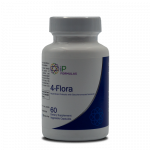
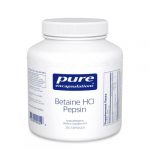
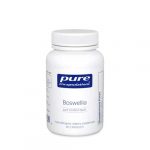
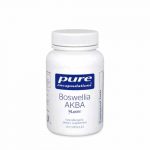
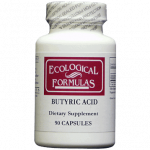
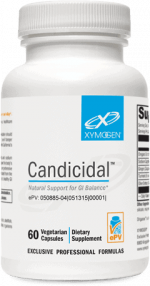


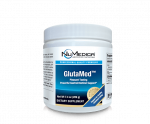






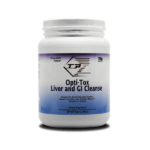
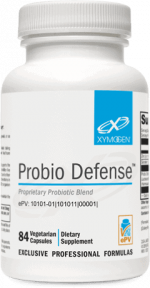


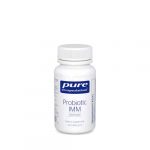
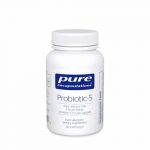
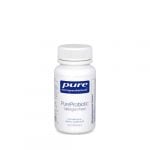
This site is protected by reCAPTCHA and the Google Privacy Policy and Terms of Service apply.